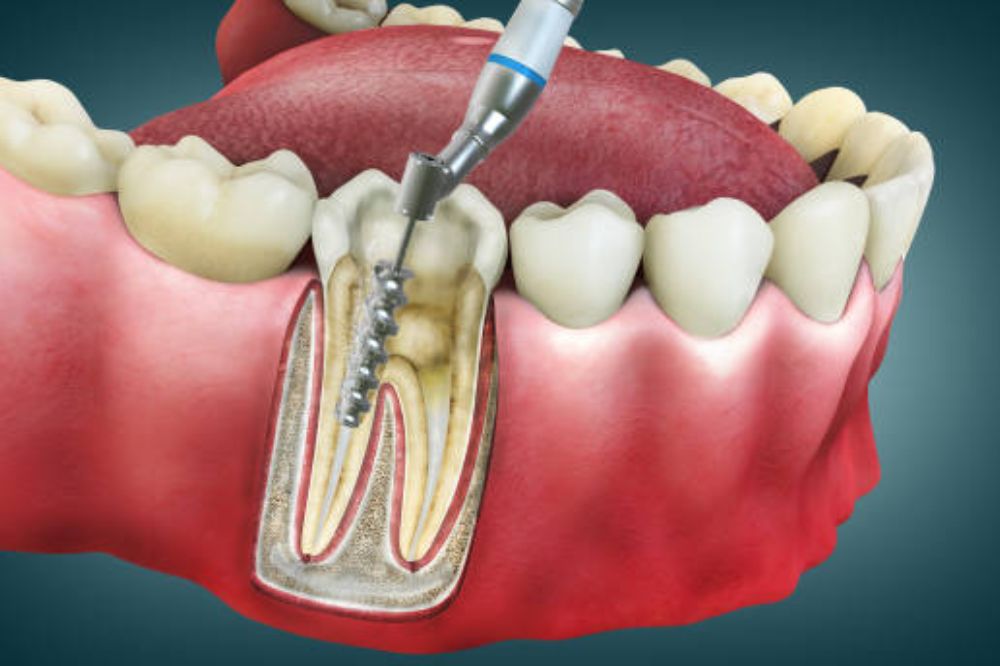
Toothaches can indicate possible deep-seated infections, while throbbing pains and transient sensitivity may disrupt your day’s schedule. By itself, it’ll hardly pop out, and then again, the pain might worsen. Most people prefer suffering to getting treated because of ignorance or fear.
We know how scary-well, sort of-some of these dentist terms may sound. Thus,” understanding” types of root canal therapy in SW Calgary will give you confidence and help soothe your nerves.
This guide walks you through the various types of root canal procedures, their benefits, and how to determine the best one based on your needs.
What Is Root Canal Treatment?
Root canal treatment is a dental process where the removal of infected pulp tissue within the tooth will relieve pain and control further decay.
The internal pulp is composed of nerves and blood vessels; therefore, in the case of infection, it has to be cleaned out. More specifically, the tooth is sealed and restored.
Depending on the condition of your tooth, the number of roots it has, and whether it is a first or repeated procedure, there are several types of root canal treatment.
Why Are There Different Types of Root Canal Treatments?
Not all teeth are the same. Some have one root; others have multiple. Sometimes the infection is simple and can be resolved quickly, while other times it is complex and may require a specialist. That’s where root canal procedure options come in.
Dentists evaluate the structure of your tooth and the extent of infection to decide the best approach.
What Are the Various Kinds of Root Canal Treatments?
Here are some common root canal therapy types and how they work:
1. Conventional Root Canal Treatment
- This is the most common type.
- It involves removing the infected pulp, cleaning the root canals, and sealing them.
- Usually completed in one or two visits.
2. Endodontic Retreatment
- Needed when a tooth that has already had a root canal becomes infected again.
- The dentist reopens the tooth, removes the previous filling, cleans it again, and reseals it.
3. Apicoectomy (Root-End Surgery)
- This is a minor surgical procedure done when infection persists after a root canal.
- The dentist removes the tip of the root and seals the end.
4. Pulpotomy
- Often performed on children.
- Only the infected part of the pulp in the crown is removed, leaving the root intact.
5. Pulp Capping
- Used when the pulp is not diseased but is exposed.
- To stop infection and let the pulp heal, a medicinal substance is applied.
These different types of root canal treatments are chosen based on how deep and widespread the infection is.
Which Root Canal Treatment Do I Need?
This depends on several factors:
- Is this your first treatment?
- How deep is the decay?
- Has the tooth been treated before?
- Are there complications like curved roots or hidden canals?
Your dentist will take X-rays and evaluate your symptoms. If the infection is localized and the structure is intact, a standard root canal may be enough. But if it’s a recurring issue or post-treatment infection, retreatment or surgery may be needed.
Ask your dental clinic near you about which options best suit your case. Trusting your provider and understanding the options can make a big difference.
How Long Do Root Canal Treatments Take?
The duration depends on the complexity. Simple cases may take one hour. Others might require multiple appointments.
- One-visit root canals: Suitable for uncomplicated cases.
- Multi-visit root canals: Needed if the infection is severe or the tooth has multiple canals.
Common Signs You Might Need Root Canal Therapy
Here are some symptoms to watch out for:
- Throbbing or lingering tooth pain
- Sensitivity to hot or cold
- Swollen gums or face
- Discoloration of the tooth
- Pimple-like bump on gums
If you notice any of these signs, you should talk to a dentist near you for timely diagnosis and treatment.
Benefits of Getting the Right Treatment
Choosing the right treatment ensures
- Long-lasting tooth preservation
- Reduced risk of reinfection
- Less discomfort and faster healing
- Lower long-term dental costs
Being aware of your root canal procedure options empowers you to make better decisions and ask your dentist the right questions.
Cost and Insurance Considerations
Costs for root canals vary according to their type and intricacy. Surgical procedures and retreatments are typically more costly. Most insurance policies pay for some of it.
Ask about insurance coverage or payment plans with your dentist’s office.
Wrapping Up!
Understanding the types of root canal treatment available can make your dental experience less intimidating.
Whether you need a simple root canal or a more complex procedure, knowing the differences helps you prepare for what’s ahead. If you’re searching for a trusted SW Calgary dentist, Atlas Dental Centre offers expert root canal solutions tailored to your needs.
Choose Your Treatment With Confidence
As a leading dental clinic in SW Calgary, we combine comfort and care to restore your smile efficiently. Book a call now to take the first step toward healthier teeth and a pain-free life.
